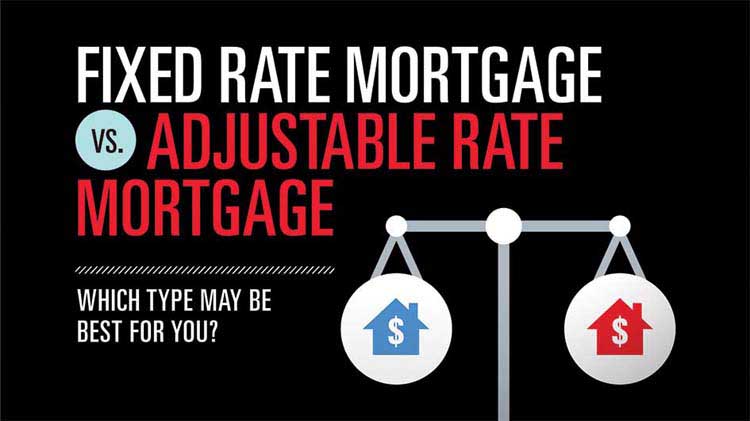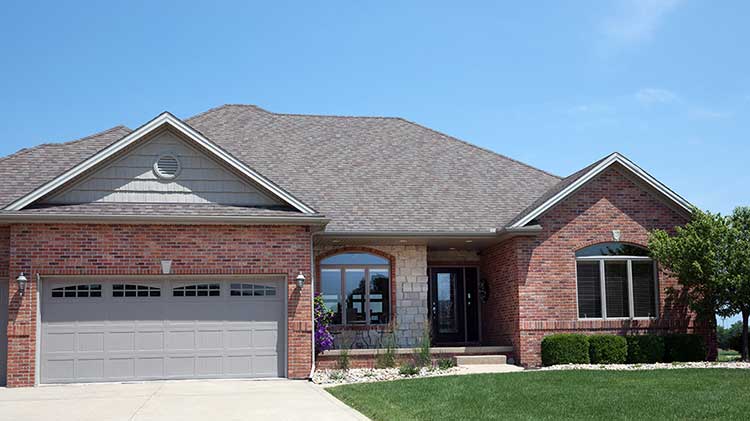Fixed rate mortgage vs. adjustable rate mortgage
Which type may be best for you?
There are two types of mortgages, fixed rate and adjustable rate mortgage (ARM). Each mortgage type has its advantages and disadvantages.
What is a fixed rate mortgage?
A fixed rate mortgage loan locks in an interest rate for the life of your mortgage. This type of loan helps protect borrowers from rising interest rates. It also has a variety of term options, typically 15 or 30 years.
Fixed rate mortgage pros and cons
- Pro: This loan type has predictable payments that may allow for easier budgeting.
- Pro: The loan seems to be simple to understand and may be good for first-time buyers.
- Con: You may pay more interest over the life of the loan.
- Con: You have to refinance to get a lower interest rate, which can be costly.
Other considerations with a fixed rate mortgage
- The future: How long do you think you will stay in your home: 20-30 years?
- Budget: Do you want consistent monthly payments?
- Interest rates: Are current mortgage rates historically low for this type?
What is an adjustable rate mortgage? (ARM)
An ARM has a fixed interest rate usually for about 5-, 7- or 10-year terms and then the rate adjusts annually. They generally have a cap on interest rates so they only increase to a certain point.
Adjustable rate mortgage pros and cons
- Pro: The initial interest rate may be lower than on fixed rate mortgages.
- Pro: The loan can be customized to individual borrowers.
- Con: The interest rate on the loan may increase significantly.
- Con: The loan could seem more complex than a fixed rate mortgage.
- Con: The loan payment may fluctuate so you may not have consistent monthly payment amounts.
- Con: You may be required to pay more interest over the life of the loan, depending on how adjustable rates fluctuate over time.
Other considerations with adjustable rate mortgages
- The future: Do you plan to move or refinance before the adjustment period?
- Budget: Can you handle the fluctuating monthly payments?
- Interest rates: Are mortgage rates historically high?




